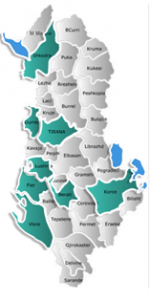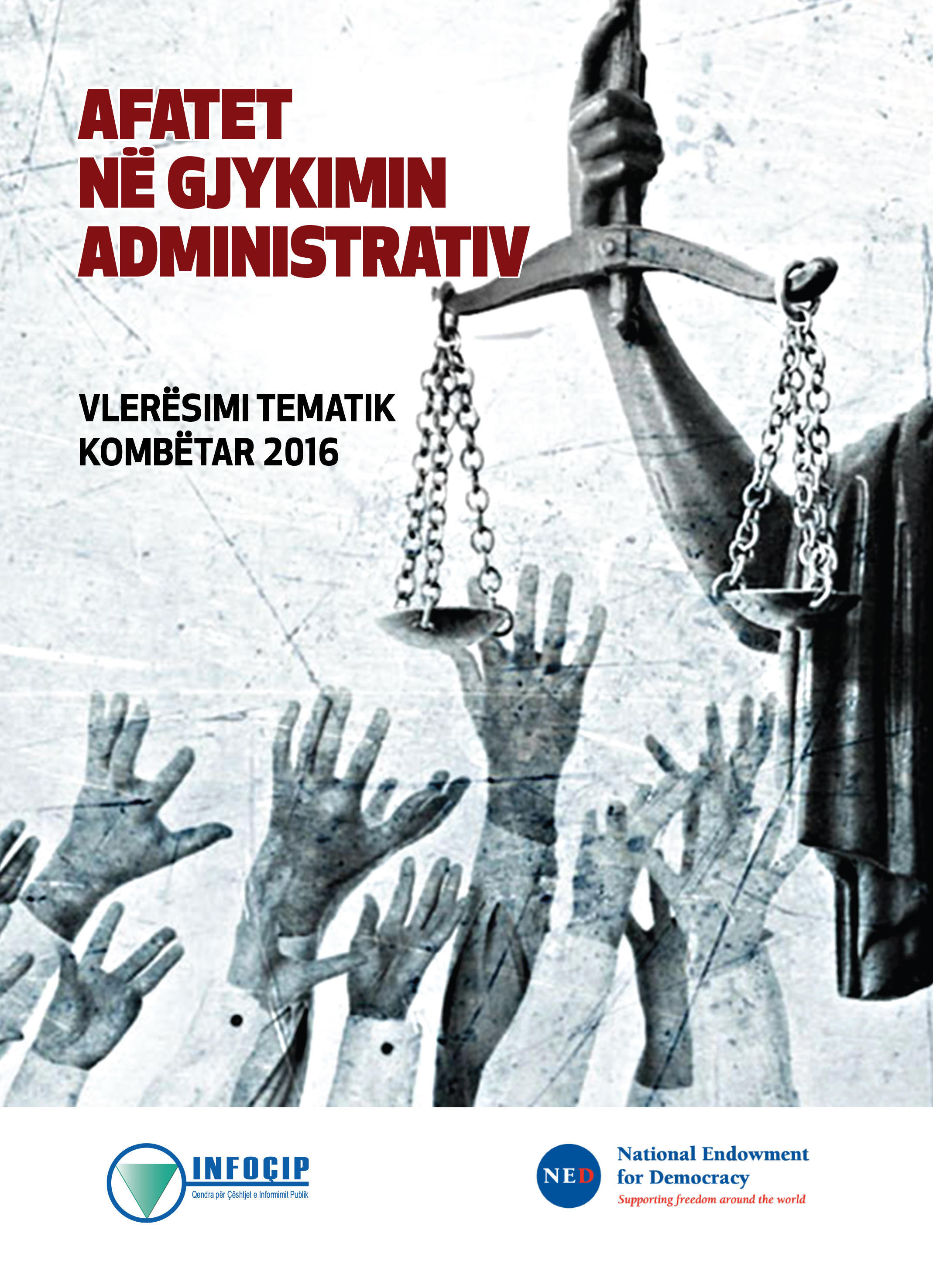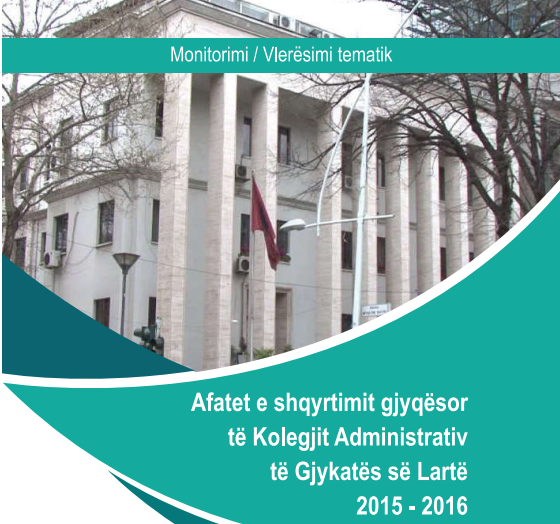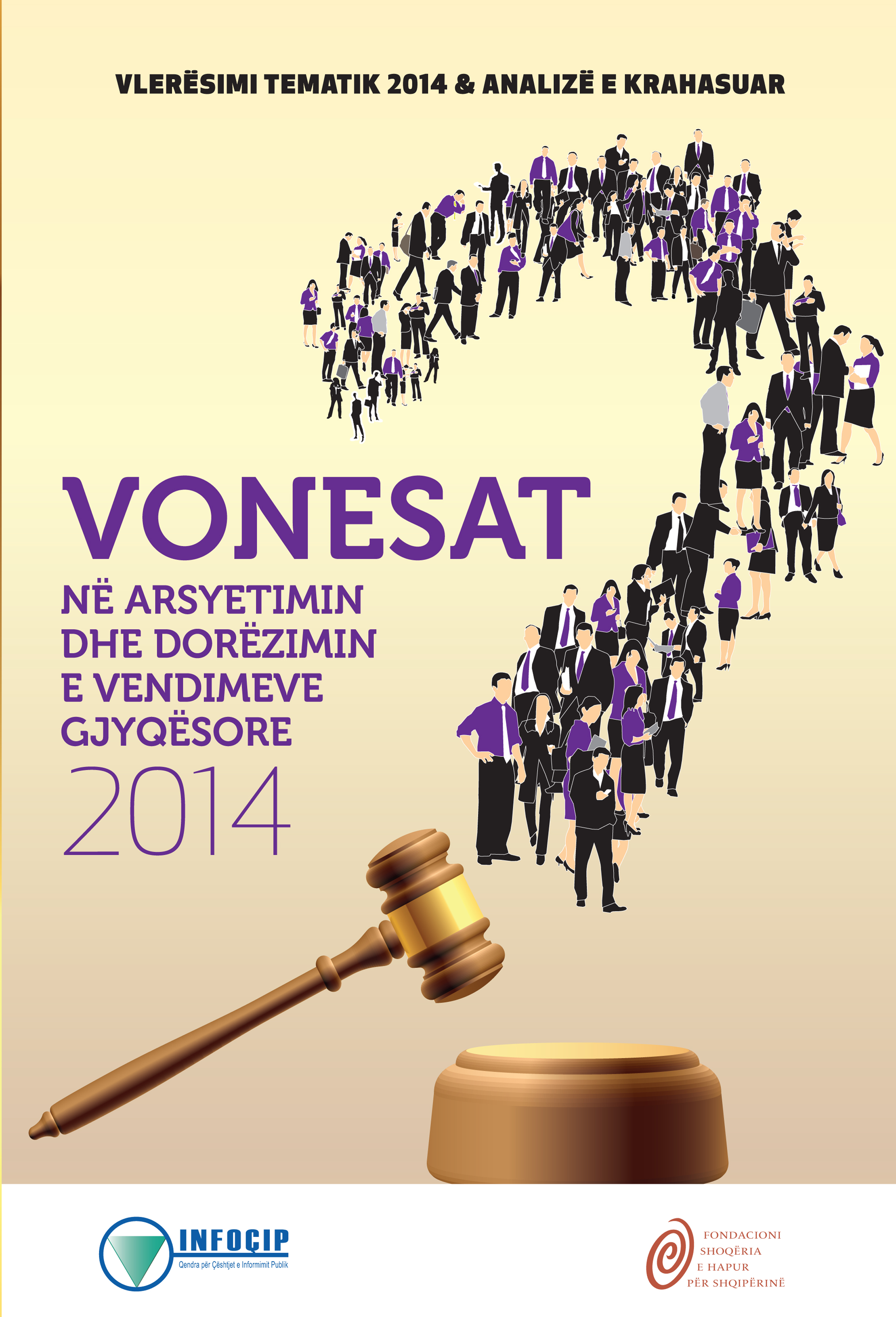INFOCIP announces the National Monitoring of Administrative Courts of Albania 17-18
Since 2014, INFOCIP has been implementing an Independent Thematic Assessment Program in the system of Administrative Courts, to identify the timing and deliberations and delays in delivering decisions. Speedy trial is a key feature of administrative justice. Currently, there are 6 administrative courts of first instance in Albania and only one Court of Appeal.
Since their creation, the administrative courts have been left with half the judicial body. Meanwhile, their load increased year after year.
According to the new laws adopted under the Reform of Justice, no court can have less than 7 judges in the Republic of Albania. The administrative courts have not hired any new judges so far and seriously risk inefficiency. Due to the vetering, today we have courts that have 1 judge left, out of 7 that should have had the rule to function in accordance with the legal criteria set by the Reform itself.
The Administrative Court of Appeal is the only one that has been able to increase the number of judges from 7 to 13 judges. This happened anyway before the Justice Reform. Systematic assessments of the court workload carried out by INFOCIP suggest that this court should have at least 20 judges to review the large volume of cases being appealed.
In two years, 2018 and 2017, the Administrative Court of Appeal rendered 10289 decisions on the merits. Of these, only 1% were adjudicated within the 30-day deadline set by law. The average duration of the trial in 2018 is estimated at 745 days and in 2017 it is 677 days.
During 2017, the first instance administrative courts adjudicated 10439 foundation cases, with an average duration of 163.5 days. The best performance in this regard was given by the Administrative Court of Gjirokastra, followed by that of Vlora and Tirana. The latter also faced the largest burden of 5061 founding decisions. Each of the 16 judges has rendered 26 foundation decisions each month, not counting the review of claims.
The Supreme Court Administrative College issued 897 decisions in 2017 setting its own historical record, not only for the Administrative College, but also for the entire Supreme Court since its creation. Due to the overcrowding and lack of a judicial body, a significant part of the decisions were delivered in 2018, with a total average of 136 days in the reasoning, out of just 10 days provided by the law on Administrative Courts in the third instance. . Supplementing the Supreme Court with judicial bodies is an emergency.

LAST RELEASED PUBLICATION
MONITORING REPORT
Recent reports/studies
Partners / Donors
Local Branches
- Citizens' Transparency Office, Durrës (19)
- Citizens' Transparency Office, Korça (9)
- Election Situation Chamber (11)
- JUDICIARY (1)
- NED (11)
- www.vendime.al (5)
Foto lajm

- CPII anounces the monitoring result for Durres Municipal Council. It must be re-elected
Where we work














